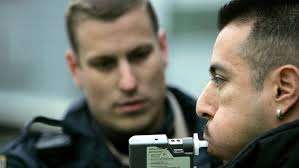
There is often a great deal of confusion concerning when an immigrant is applying for permanent residence and whether they have to return to their own country to attend the immigrant visa interview. Here is a very simplified guide to provide some background on the immigration process, but we still highly recommend that you reach out to an immigration attorney at Ervin Kibria PLLC to discuss your particular case.
Normal Adjustment of Status: The general rule is that, in order to apply for legal permanent residence while remaining in the U.S. (called Adjustment of Status), you cannot have any immigration violations such as: overstaying your visa or engaging in activities that are not allowed by your visa such as working without permission while on a tourist visa.
There are some exceptions to this rule, however. Immediate Relatives (spouses, unmarried children, and parents of U.S. citizens) can adjust status even if they have certain immigration violations. But these Immediate Relatives must prove they were admitted or paroled into the U.S. even if they overstay the date of their visa or parole.
Another exception for certain employment based permanent residence cases allows status violations of less than 180 days. Battered spouses who entered unlawfully or have status violations can also adjust status. (Each case must be carefully analyzed to determine if this is possible.)
Special Adjustment of Status: Many applicants for permanent residence do not qualify to adjust status because of some immigration violation. Section 245(i) of the Immigration and Nationality Act (INA) allows for Special Adjustment of Status when a valid immigrant petition was filed on, or before, April 30, 2001. This generally requires the payment of a $1,000 fine for approval.
This Special Adjustment is also available when a different petitioner has filed an immigrant petition for a beneficiary after April 30, 2001 so long as prior to this date, there was an immigrant petition that was “approvable when filed” on behalf of the beneficiary. Competent legal advice is required for a proper analysis of this situation. Other requirements apply such as providing proof of physical presence in the U.S. by December 21, 2000 when the previous immigrant petition was filed after January 14, 1998 and on, or before April 30, 2001.
Consular Processing: Consular Processing is the alternative to Adjustment of Status and the applicant for an immigrant visa must return to their country of origin for this process. There are often severe consequences for leaving the U.S. for those who have accrued unlawful presence and competent legal advice is recommended to analyze this situation carefully.
Often immigrants seeking permanent residence have entered the U.S. without permission or have been residing in the U.S. after the expiration of their visa and/or the validity date of their I-94 (Arrival and Departure Record). At this point they begin to accrue “unlawful presence” which may result in severe consequences upon departure from the U.S.
Consequences of Unlawful Presence: If the immigrant, after the age of 18, has accrued 6 months but less than 1 year of unlawful presence and then departs the U.S., the immigrant will be inadmissible and prevented from returning to U.S. for 3 years. If the unlawful presence, after the age of 18, is 1 year or more, then the immigrant will be inadmissible and prevented from returning to the U.S. for 10 years. Both of these bars can be waived if the immigrant applies for a waiver and persuades the USCIS that their U.S. citizen or Permanent Resident spouse or parent will suffer “extreme hardship” if the bars are enforced.
Again, this is meant only to act as a practical and simplified guide to determine whether you are eligible for permanent residence, and whether you must return to your home country for your visa hearing. However, we strongly recommend that you reach out to Ervin Kibria PLLC to discuss your particular case in far greater detail.
